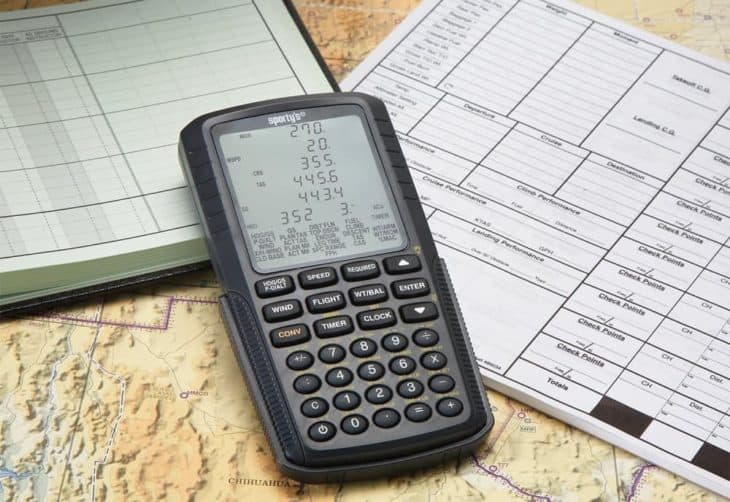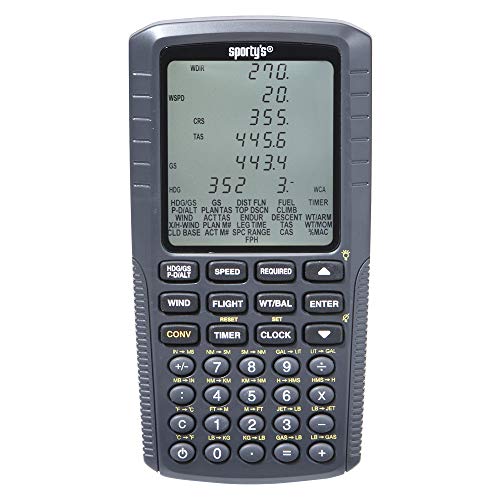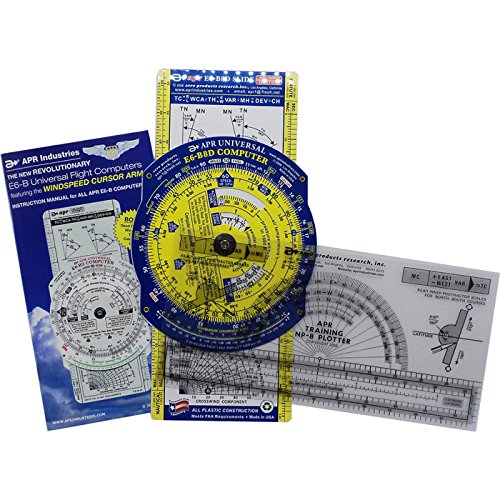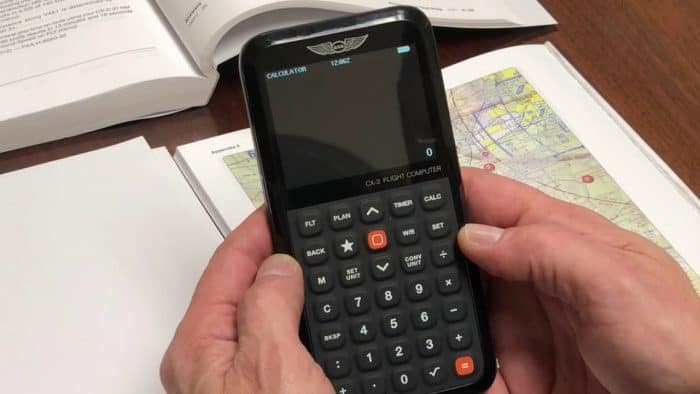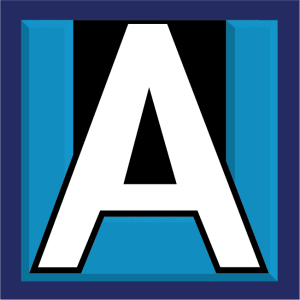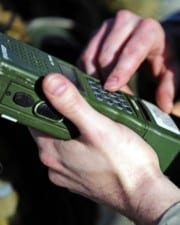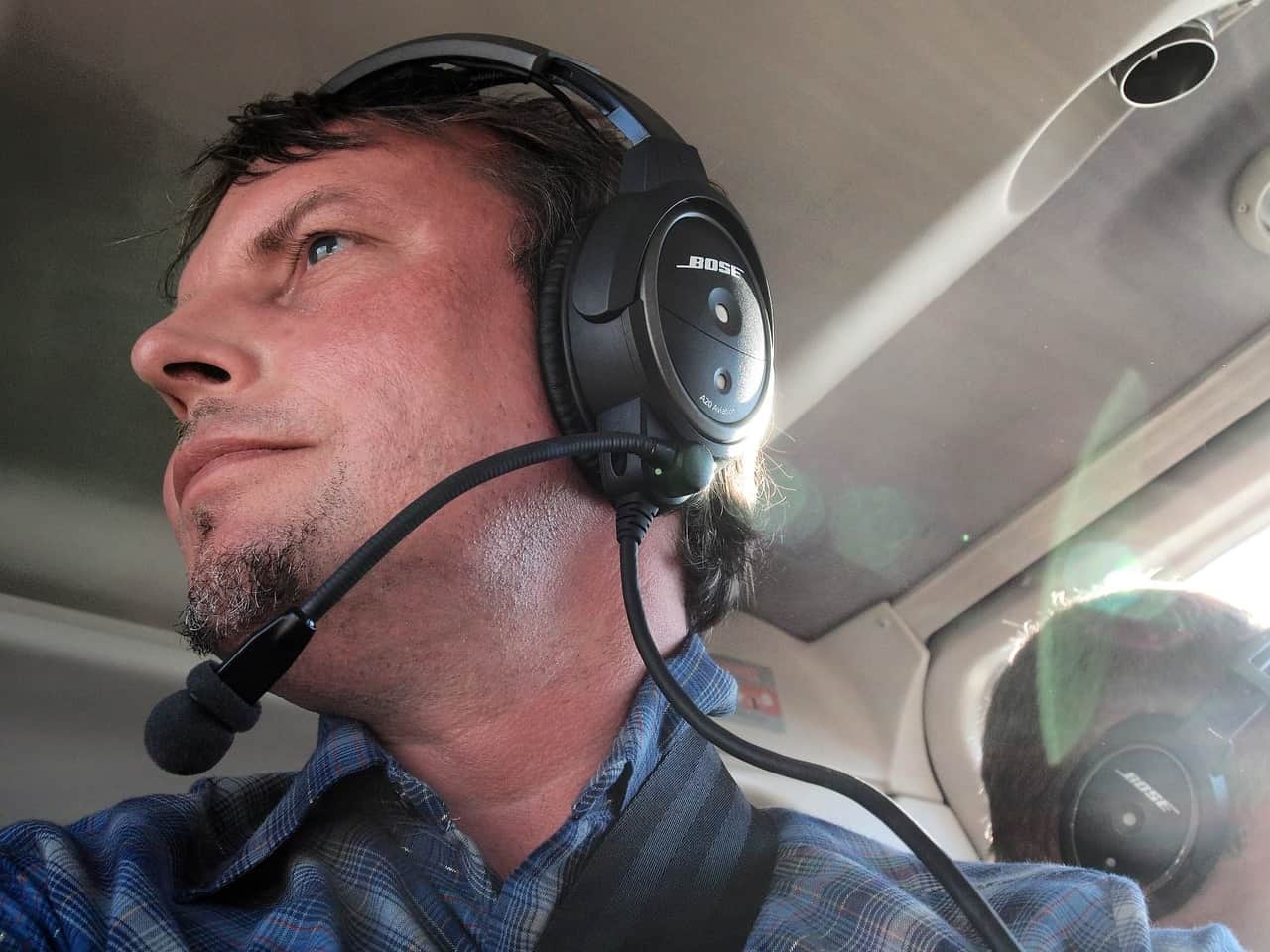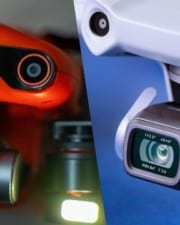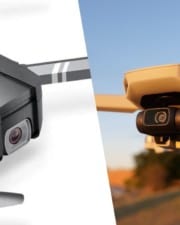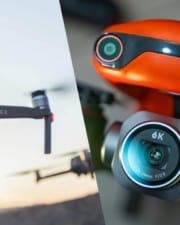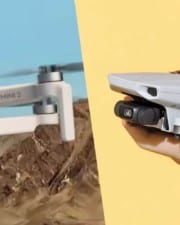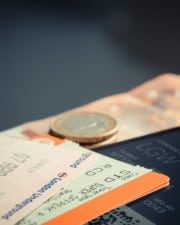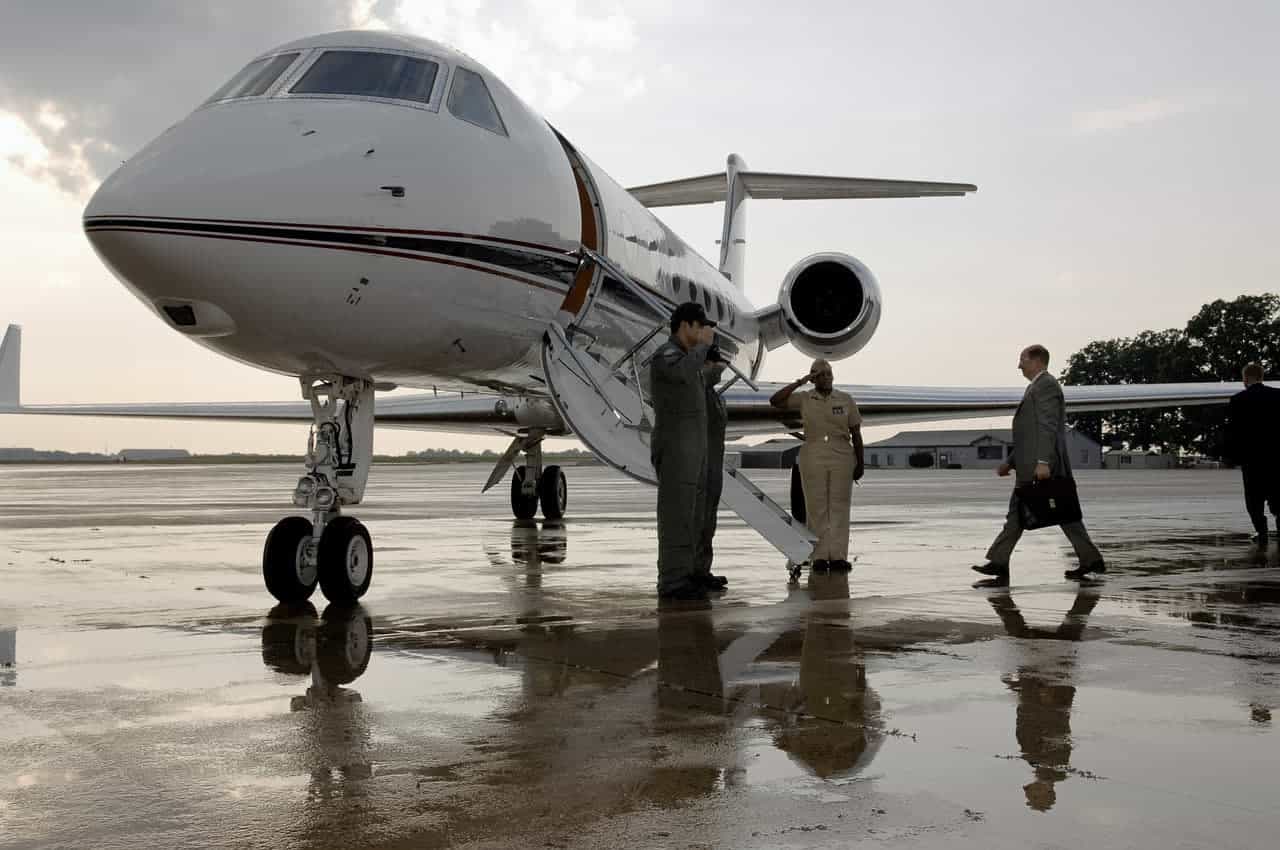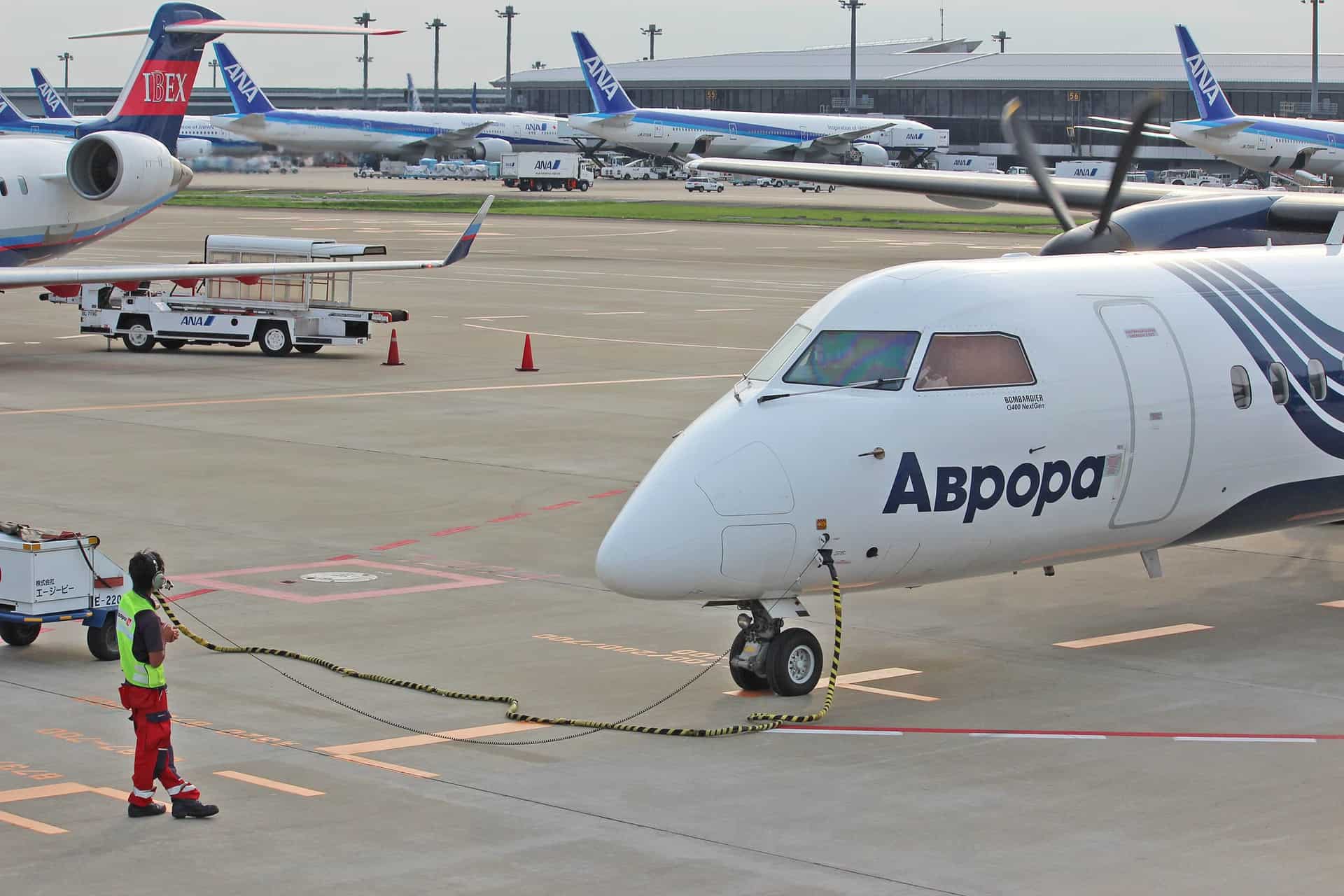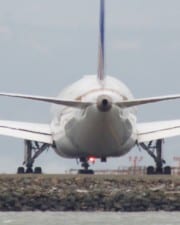If you’ve ever wondered about the types of computers used by airline pilots, wonder no more. Just like the rest of us, pilots rely on computers for a variety of purposes, and this includes the analog flight computers that are essentially circular slide rules used both in flight training and in the actual flying of the plane. Although analog in design, flight computers are used on the ground before takeoff and while the plane is in the air, making them very valuable devices a pilot can’t live without.
Table of Contents
Flight Computer Reviews
We had an in depth analysis of the strengths and weaknesses of all the most popular flight computers used today. We went through hundreds of user reviews and came up with this list of the best flight computers, categorized by type.
Best Electronic Flight Computers (CX3) (E6B)
1. ASA CX-3 Flight Computer
- The most versatile and easy-to-use...
The ASA CX-3 flight computer is versatile and easy to use, not to mention extremely accurate and reliable. One of its biggest advantages is that it can be a true miracle-worker when pilots take their exams, in part because the functions are set up in a way that is logical and makes sense. It is well-designed and made just for pilots, which means it knows what you need before you do!
Some of the features of this computer include reciprocal radials, a simple-to-use flight planning section, and buttons that are all in one piece so that the design is flawless and seamless. For calculating climb/descent to determining the relationship between airspeed and DA, the ASA CX-3 is much more valuable than a standard calculator and is a purchase you won’t regret.
View on Amazon2. Sporty’s E6B Flight Calculator
- Electronic Flight Computer: This flight...
- FAA Approved: This flight computer is...
- Black Color: The flight computer has a...
Approved for use on all FAA pilot exams, the E6B has a built-in storage case that protects the device when it isn’t being used and even a large keypad that makes using it easy even when you’re experiencing turbulence. It consists of a total of 24 aviation functions and 20 aviation conversions, and its backlit screen makes it super easy to see while you’re in the cockpit.
A small device at roughly 3” x 1” x 6”, the E6B allows you to perform certain functions that you used to do by hand, such as calculating crosswind connections and many others. It is also a very intuitive device and offers a lot of value for the money.
View on Amazon3. ASA Color E6B Flight Computer
- Measures 9-3/4" x 5"
In slide rule style, the ASA color E6B manual computer offers easy readability and is color-coded for ease of use, utilizing colors such as red, black, and blue for your convenience. The solid aluminum construction and functionality make it a device you’ll be able to keep for many years to come, and it even comes with an instruction manual and a well-made vinyl case.
This is a great device for calculating things such as time, distance, and temperature scales; wind correction angles; weight and volume; and even wind variations. Its 10” x 5” design makes it easy to utilize regardless of your environment, and it helps prepare you for all types of pilot exams. The color E6B can even be used with a dry erase marker on the wind side, and it makes calculating all types of numbers much easier and faster.
View on AmazonBest E6B Flight Computers
4. ASA E6B Metal Flight Computer
- Dimensions: 6" diameter
Made for both accuracy and durability, the ASA E6B metal flight computer is a must for all students in flight school. It is recommended by many flight instructors and comes in a slide rule style that makes it both easy to use and fast. It is much heavier and thicker than the paper version of these devices, and there are no pivot wear issues like there were with earlier versions made out of metal.
The ASA E6B metal flight computer is also so sturdy that you can carry it around in a flight bag without worrying about breaking it. In addition, thanks to the easy-to-understand instructions, you’ll be using this computer before you know it, and it makes learning what you need to learn a breeze. Most people who purchase it prefer it over an electronic computer, and it holds up well regardless of what you put it through.
View on Amazon5. ASA E6B Paper Flight Computer
With a convenient 9” x 5” design, the ASA E6B paper flight computer weighs a mere four ounces and is extremely functional. In fact, the computer is so well-made that many people never move past it to purchase another type of computer, and it is designed to be with you for quite a while. If you’re on a budget, but need a reliable and accurate flight computer, look no further because this is it.
This E6B computer is lightweight and neutral in color, and it performs the same functions you get when you purchase a much more expensive device. You can use it for pilot exams and in a real cockpit, and it is even sturdier than many of the metal flight computers. If you’re thinking a computer made of paper is going to be thin and flimsy, think again, because this one is built so that you can use it for many years to come.
View on Amazon6. Jeppesen Student Flight Computer (CSG)
Made specifically for flight school students, the Jeppesen student flight computer comes in a convenient 9” x 6” design and weighs roughly three ounces. It is designed to make your classes and exams much easier, and it is perfect for planning flight plans and many other calculations. This is a sturdy device that is durable and functional, allowing you to make your calculations with ease and accuracy every time.
Because it is made for students, the Jeppesen flight computer provides any function you need it to, regardless of the type of class you’re taking. You can predict times accurately to the minute, and it is easy to read and reasonably priced as well. In fact, if you’re a student, you need this flight computer, because it will make everything you learn and do in flight school much easier on your part.
View on Amazon7. APR Student Pilot E6B Flight Computer with Training NP8 Plotter
- Built-in Wind Cursor Arm. Quickly tells...
- Calculates all necessary flight planning...
- Color-coded scales are easy-to-read and...
For a manual computer, this computer does a lot, including calculating en route and flight-planning navigation requirements. The color-coded features make reading the computer extremely simple, and it is user-friendly for both fast and simple readings. Because the instructions are printed directly on the computer, using it is both easy and quick, and it calculates time, distance, and speed, among other things.
The E6B student pilot flight computer has a built-in cursor arm and gives you wind correction angle, magnetic heading, and groundspeed with ease. Even more complex tasks are made much simpler with this device, and it is also one of the least expensive flight computers on the market. There are added options and colors that make operating it a breeze, and it is the perfect computer if you want something between a paper one and one made out of metal.
View on AmazonBest Circular Flight Computers (CR3)
8. Aero Products CR-3 Circular Wind Triangle T/S/D Computer by APR
- The wind side of the CR provides quick,...
- Exclusive Microset that allows the...
- Double Sided: (1) Calculator side (2)...
The CR-3 circular flight computer weighs less than a pound and is roughly 6” x 5” in size. It has been a favorite of both students and professional airline pilots for a very long time, and it offers newer and better functions over other types of flight computers. In addition, its more modern and updated features make it a very valuable and accurate device to have.
The calculator side of the computer is fast and accurate at problem solving, and the wind-computing side uses top-notch, technologically advanced equipment so that it is always as accurate as possible. It simply makes your preflight and in-flight time a lot easier, and its low price means that pilots with all types of budgets can buy it without breaking the bank.
View on Amazon9. Jeppesen CR-3 Circular Computer (6” Diameter)
The Jeppesen CR-3 circular flight computer has proven performance and is built very solid. Polar grid navigation, pressure-pattern flying, and wind triangles are no problem with this flight computer, and its 9” x 6” design makes it easy and convenient to take with you wherever you go. You can use the device in both low- and high-speed situations, and it automatically compensates for compressibility and pressure rise factors.
In addition, this flight computer is reasonably priced and comes with an easy-to-understand instruction manual that will have you calculating accurately in no time. The spinning feature is very smooth, and the computer is very precise and reliable. In fact, each side offers a variety of very important functions that are simple to do and will save you a lot of time when compared to other types of flight computers.
View on AmazonPrivate Pilot Kits
10. ASA Private Pilot Kit
- Perfect kit for introductory students...
This is a complete kit for the student in flight school, and it is something every student needs. It comes with a variety of books and supplies, and it even comes with a beautiful ASA pilot briefcase. The biggest advantage of purchasing the kit is that you are guaranteed to meet all FAA regulatory requirements because you’ll have everything you need to make that happen. It includes the book “The Complete Private Pilot” by Bob Gardner, which is considered one of the best.
In addition to this book, the kit includes several test preparation books that help you study properly for your exams so that you are more likely to pass them. There is an oral exam guide, practical test standards book, and visualized flight maneuvers handbook that help students with all types of flight exams. The books are well-written, easy to understand, and offer practical information that makes it easy to learn what you must to know the material well enough to pass the exam.
Best of all, the material in the books is not rote or made to sound like a textbook. Instead, they are written in a way that makes your learning very easy, and you’ll learn everything thoroughly so that you aren’t memorizing the information, but truly learning the ins and outs of each topic. The books cover everything you’ll need to know to pass your exam, so you never have to feel unprepared for that upcoming flight exam.
View on AmazonFlight Computer Knowledge
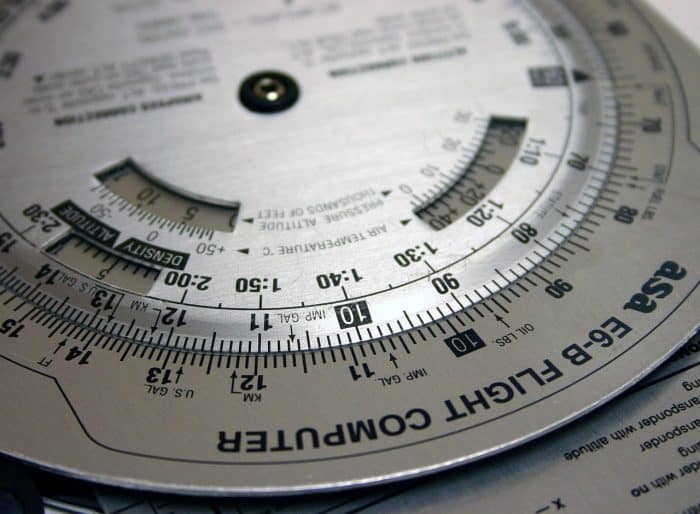
What Is a Flight Computer?
A flight computer is used both before takeoff and while the plane is in the air, and its uses include calculating fuel burn, time en route, and wind correction, while the plane is still on the ground; and calculating ground speed, updating the estimated time of arrival, and estimating fuel burn, while the plane is in the air. You can also use a flight computer to determine how much the wind affects the plane’s course and speed.
Flight computers are commonly known as the E6B, CRP-5, or the CR2 and CR3. In German, it is frequently called the Dreieckrechner.
Electronic Versus Manual Flight Computers
Most flight computers are analog computers, which may be considered unusual for the 21st century. There are, however, electronic versions of flight computers that are still allowed to be used in FAA exams. However, pilots are still required to know how to use an analog computer because that is the type usually found in the plane itself.
How to Use a Flight Computer
Flight computers have various functions, including a few basic functions that all pilots need to learn how to do. These include the rotating slide rule side, which involves three scales that you can line up to calculate things; lining up one number with another one to get a certain answer, including determining your ground speed; and the wind side, or back side, which has a rotating scale and a reference point found in the center of a circle.
Best of all, specific directions for using a manual computer are usually printed on the device itself, making it easier to determine how to use it.
Who Invented the Flight Computer?
Flight computers were invented by Philip Dalton, a Naval Reserve pilot; and P.V.H. Weems, and they have gone through various revisions through the years. The Model B, developed in 1933, came with corrections for True Airspeed (TAS) and Altitude. In 1936, the device was modified again, followed by several other revisions until the E6B was developed. The E6B was used during World War II, when over 400,000 of them were manufactured and used by the military.
References ▾
Related Posts
